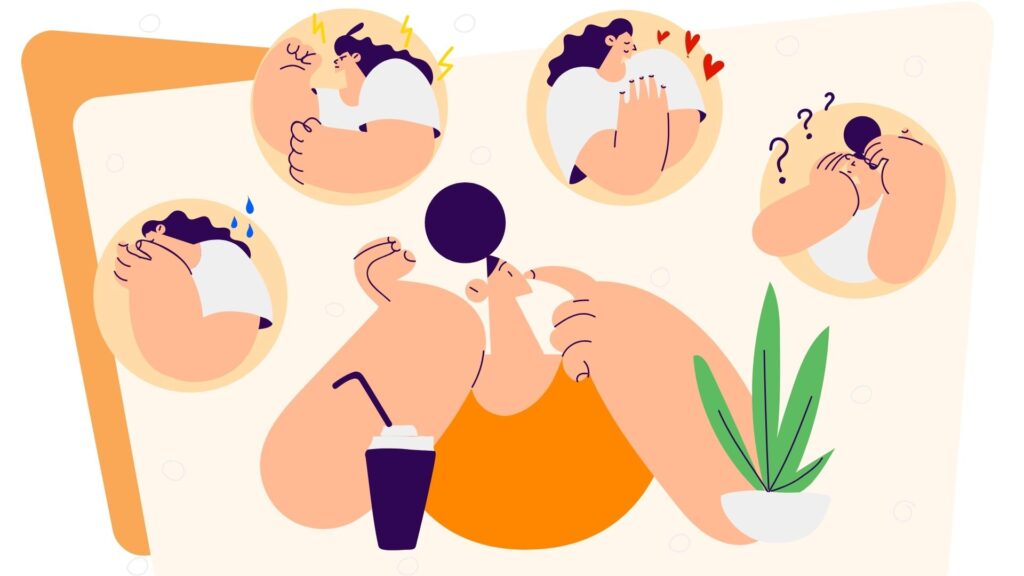“Emotional capacity is not an individual’s fixed trait; he can develop and improve it if he wants.”
Do you feel like you’re in a constant state of stress, anxiety or panic? Do you find yourself reacting to everyday situations with anger, frustration or self-doubt? Do you have trouble handling challenging circumstances without falling apart, worrying endlessly about what might go wrong, or feeling depressed? Everyone experiences negative emotions from time to time. But for some people, these feelings are so frequent and intense that they have a significant impact on their daily lives. This is where emotional capacity comes in. If you’re reading this article, chances are you need to develop your emotional capacity—and fast.
Increasing your emotional capacity is an important life skill that can help boost your resiliency and improve your ability to cope with stressors and difficult situations.
What is Emotional Capacity?
Emotional capacity is the ability to be fully present in your life, experience a wide range of emotions and handle difficult feelings without falling apart. Essentially, it’s your ability to manage your emotions, overcome limiting beliefs and manage stress, and ease to adapt to challenging situations and bounce back confidently with efficient strategy and the quality of their relationships.
But don’t think that people are born with emotional capacity. – It’s a Life Skill. It’s Flexible. It’s a scale that you can grow with effort and practice. A person possessing a high emotional capacity is better equipped to manage various situations, regulate emotions, face criticism fearlessly, foster positive relationships, and ultimately, maintain improved mental health.
What’s Your Emotional Capacity Level?
Here are some examples that will help you find out: do you have low emotional capacity?
- Emotions overflow, and you struggle to control them, but all goes in vain.
- Unable to understand others’ emotions and fail to empathize with them
- Become frustrated or angry about your small mistakes or setbacks, even when they are not in your control.
- Unable to bounce back from negative life experiences or stressful and challenging situations.
- If you are unable to effectively communicate your emotions or hesitate to express them to others.
- You try to avoid situations or conversations which involve emotions because you feel uncomfortable.
- You easily engage in negative self-talk or always criticize yourself.
- You have difficulty experiencing positive emotions like joy, love, or gratitude.
- You often feel disconnected or isolated or try to isolate yourself from others.
- You feel unable to build positive relationships.
- You find yourself constantly struggling with self-regulation, like trying to manage emotions in stressful and challenging situations or even avoiding impulsive behavior.

Emotional Capacity Vs Emotional Intelligence
Emotional capacity and emotional intelligence are two related but distinct concepts.
Emotional capacity refers to a person’s innate ability to experience and process emotions. Some people may have a higher emotional capacity than others, meaning they are more able to feel a range of emotions and handle intense emotions in a healthy way.
Emotional intelligence, on the other hand, is the ability to recognize, understand, and manage one’s own emotions, as well as the emotions of others. (Goleman, D. (2020). Emotional intelligence.) It involves being able to communicate effectively, empathize with others, and navigate social situations with emotional intelligence.
While emotional capacity is more innate and inherent, researchers suggest that emotional intelligence can be learned and improved through education, practice, and self-awareness. Both emotional capacity and emotional intelligence play important roles in overall emotional well-being and social functioning.
Causes of Low Emotional Capacity
Individuals who have lower emotional capacity often face challenges in managing their emotions. They may find it challenging to control their impulses and lash out at others, especially when they feel threatened or cornered. Lower emotional capacities are generally not because of some reasons, but sometimes the combination of genetic, environmental, and personal factors may become the cause of it like –
- Parenting style also impacts emotional capacity. If parents give emotional warmth, play a positive role, and offer support, their children learn to cope with emotional challenges; otherwise, they struggle with low emotional capacity throughout life.
- Some environmental factors may also be culprits, like discrimination, poverty, and social isolation.
- Chronic stress, narcissistic behavior, and lack of emotional support and confidence may cause lower emotional capacity.
- Trauma also becomes a cause of emotional dysregulation and lowering the emotional capacity, like neglect, abuse, or physical or emotional trauma.
- Neurological conditions like ADHD, autism, or depression are also the reasons for lower emotional capacity.
Tips to Enhance Your Emotional Capacity

1. Acknowledge and Reflect on Your Emotions
If you are aware of your emotions, you can better control them. Awareness about your own and others’ emotions and the emotional responses you get gives you a greater chance of developing higher emotional capacity. For example, suppose you identify and understand that you are feeling anxious or angry at a particular moment or due to any specific reason. In that case, you are better able to communicate or process those feelings, which will bring positive results.
The best thing is to keep a diary, track the time you feel that particular emotion comes, take notes about the reason behind it, and then go for further process of tackling the emotion.
2. Comprehend the Impact of Your Behavior
Though self-reflection is essential in developing emotional capacity, you can’t neglect your own behavior and its effect on others. So always try to understand how others perceive your behavior and communication. If you make changes in your message just because others perceive it rightly, it will show how emotionally intelligent you are. You can also ask them about their feeling toward your behavior; it’s also a significant step from your side.
3. Engage in Active Listening
Listen to others and observe their body language; thus, you can infer peoples’ reactions. Moreover, suppose you actively listen to others, ask questions, repeat essential points, and nod to second their thought. In that case, all these things show that you respect your speaker, try to understand them, and are hopeful for good communication and building a healthy relationship.
4. Cultivate Mindfulness
If you regularly practice mindfulness, it makes you able to pay attention to your present moment and doesn’t allow you to judge yourself. Thus, you can better understand your emotions, learn to manage them correctly, and able to increase your EC.
5. Enhance Communication Skills
Communication isn’t bad, but remember to think before saying or writing any word. So, the information you share and your tone and behavior shape your relationship. Try to use assertive communication; it not only earns respect but shows a strong impact of your personality on others without becoming too aggressive or passive.
6. Maintain a Positive Outlook
Try to remain positive and motivated in stressful situations. When an emotionally intelligent person handles a situation positively and remains calm and motivated, his personality affects others. The whole team becomes relaxed and encouraged to find more solutions to problems.
7. Practice Empathy
Try to empathize with otters; it’s a great trait and presents emotional strength; don’t consider it a weakness. It’s a great way to of developing a mutually respectful relationship.
8. Develop Stress Management Techniques
As stress is a reason for lowering emotional capacity, some stress management techniques, like meditation, exercise, or deep breathing, will be beneficial. Such techniques help you to remain calm, manage stress, and devise solutions to problems without panicking.
9. Reach Out for Support
If you think you need a therapist to help develop and polish your emotional capacity, don’t worry. It’s a normal thing to ask for support from friends and family and even a therapist.
Things People With Higher Emotional Capacity Never Do
People with higher emotional capacity tend to exhibit some common habits and behaviors and avoid others that may negatively impact their emotional well-being.
Avoiding the Emotional Trap
Such people listen to others calmly, give the best advice after thinking, and show empathy, but it doesn’t mean they easily fall into the emotional trap. They don’t allow others to blackmail them and rule over their lives emotionally.
Rising Above the Victim Mentality
A person with a high emotional capacity never feels victimized and always tries to find solutions, even in worse situations.
Finding Solutions
They never think they are run off good solutions or ideas; instead, they try to find them. Moreover, they never blame others or the situation for the problems.
Letting Go of Negative Thoughts
Individuals with high emotional intelligence possess the unique skill of controlling their cynical thoughts. They understand that negative thoughts are merely fleeting and tend to rely on factual information to draw conclusions while dismissing pessimistic ideas.
Learning from the Past
Such people don’t feel sad due to past memories; they use them to learn from their mistakes and to make better choices.
Selfishness
They are selfish because a little bit of selfishness is essential. But they always think about others, help them, and give empathy.
Avoiding Groupthink
If everyone is doing something, it doesn’t mean they will also do the same. They get inspiration from successful people and learn from others’ mistakes, but never follow the mob without giving a thought to it.
Constructive Criticism
They have a productive mindset and know people can try their best, but success and failure are part of life. They never criticize others and shatter their personalities.
Conclusion
Enhancing emotional capacity can bring positive changes in a person’s life and make them emotionally and physically strong. As EC is not fixed, a person can try to develop and polish it without age limitations. Thus, don’t ignore this; try our guide to develop the emotional capacity to achieve mental well-being
















